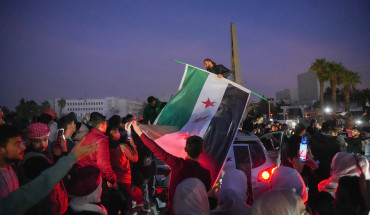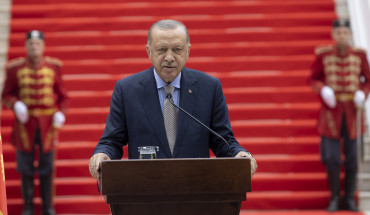The Iranian Parliament’s National Security and Foreign Policy Committee on Wednesday approved a bill titled “Countering America’s Adventurous and Terrorist Actions” in response to the latest U.S. sanctions, the Iranian media reported. According to the text of the bill published today by the Islamic Republic News Agency, the legislation obliges the ministries of foreign affairs, defense and intelligence as well as the Islamic Revolution Guards Corps (I.R.G.C.) and its elite Quds Force to work together to prepare a “comprehensive strategic plan” in coordination with the Supreme National Security Council to “counter the U.S. threats and subversive activities” against the Islamic Republic. The bill also requires relevant authorities to take actions against America’s “imperialistic, terrorist and divisive policies” and to report on the implementation of the plan to the parliament on an annual basis. According to the bill, the strategic plan, among other things, should cover the following:
- Summarize the strategic goals and short-term and long-term plans of the United States against Iran
- Identify countries that cooperate with the United States in achieving its goals
- Assess the U.S. military and intelligence capabilities and activities in the region
- Identify and report on U.S. “terrorist and hostile” activities in the region, including providing funding, weapons and training to “repressive” regional governments, particularly Israel
- Document U.S. human rights abuses
- U.S. assistance to terrorist and extremist groups in the Middle East, including the Islamic State, al Qaeda and Mojahedin-e-Khalq
In addition, the Ministry of Foreign Affairs and the Quds Force are required to identify and prepare a list of U.S. individuals and entities that “support terrorism” in the region. The bill also obligates the government to allocate more than $300,000,000 to further upgrade the country’s missile capabilities and a similar amount to the Quds Force, which is responsible for the I.R.G.C.’s external operations, particularly in the conflict zones of Syria, Iraq, and Afghanistan.
Comment: On August 2, President Donald Trump signed a congressional bill that imposes additional sanctions on Iran, Russia and North Korea. Hours after Trump signed the legislation, the Iranian Foreign Ministry announced that Tehran will take “appropriate and proportionate” retaliatory measures, including further empowering the I.R.G.C. and its elite Quds Force.
In the past, Tehran’s countermeasures have been symbolic as they targeted American companies that do not do business in Iran. But since the new U.S. sanctions target the I.R.G.C. and its elite Quds Force in a more significant way, it is expected that Iran’s response will carry more weight this time.
Tehran has lodged a complaint with the United Nations, accusing Washington of violating the nuclear deal. Supreme Leader Ali Khamenei and other top Iranian leaders have made it clear that Tehran will not renegotiate the nuclear deal, resist U.S. pressure, and continue to further develop the country’s missile program.
Tension between Washington and Tehran over the latter’s ballistic missile activity and support for terrorism has also been escalating recently, placing the future of the Iran nuclear deal in serious jeopardy. While the Trump administration last month certified that Tehran was in compliance with the terms of the nuclear deal, it announced new sanctions against the Islamic Republic and emphasized that the administration was “deeply concerned about Iran's malign activities across the Middle East which undermine regional stability, security and prosperity." The media also reported that Trump only reluctantly agreed with the certification and is considering abandoning the accord. Tehran has also stressed that it will not accept Washington’s demand for inspection of Iranian military sites.
The Middle East Institute (MEI) is an independent, non-partisan, non-for-profit, educational organization. It does not engage in advocacy and its scholars’ opinions are their own. MEI welcomes financial donations, but retains sole editorial control over its work and its publications reflect only the authors’ views. For a listing of MEI donors, please click here.












